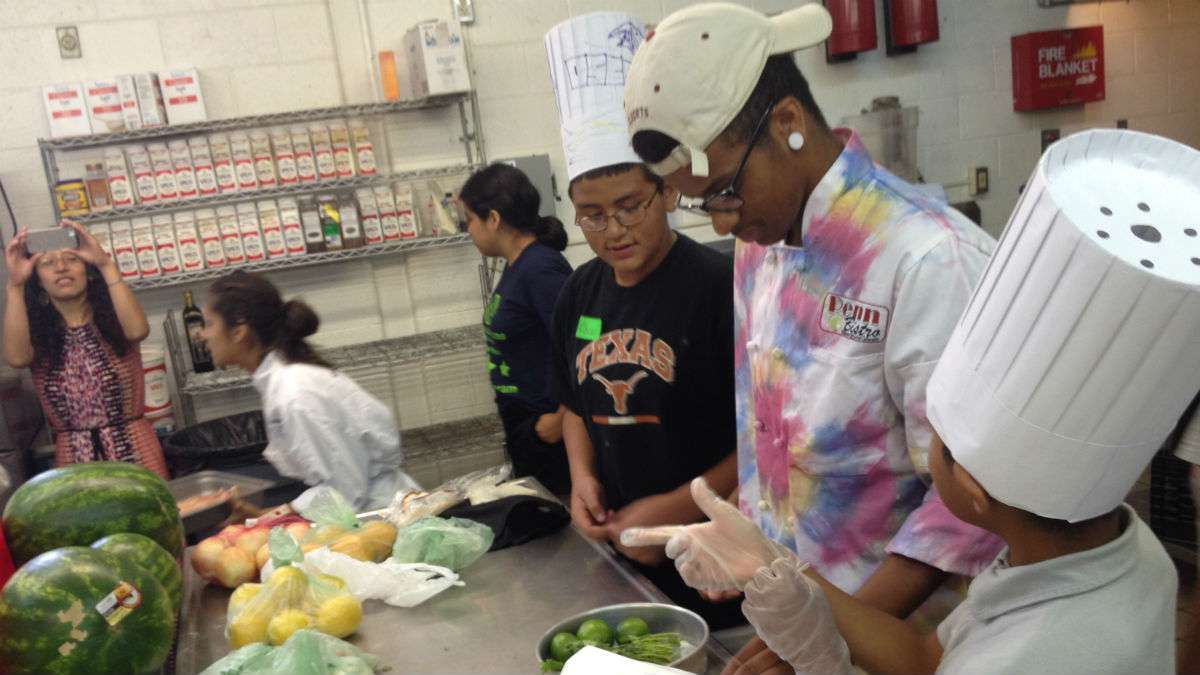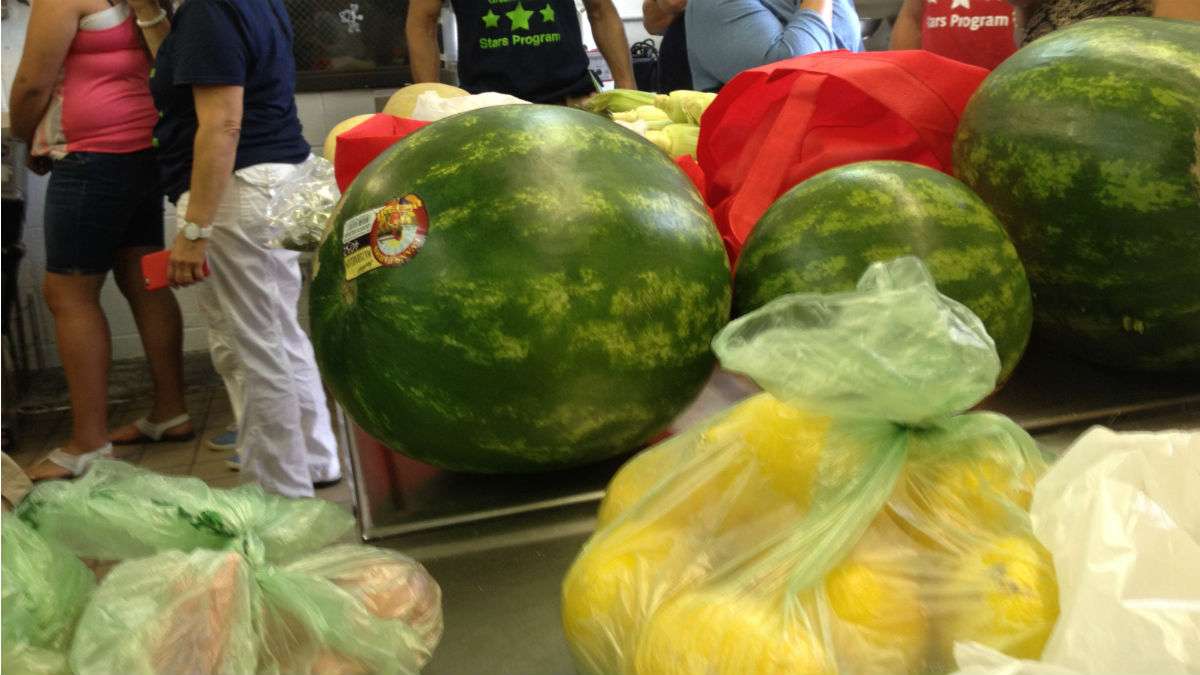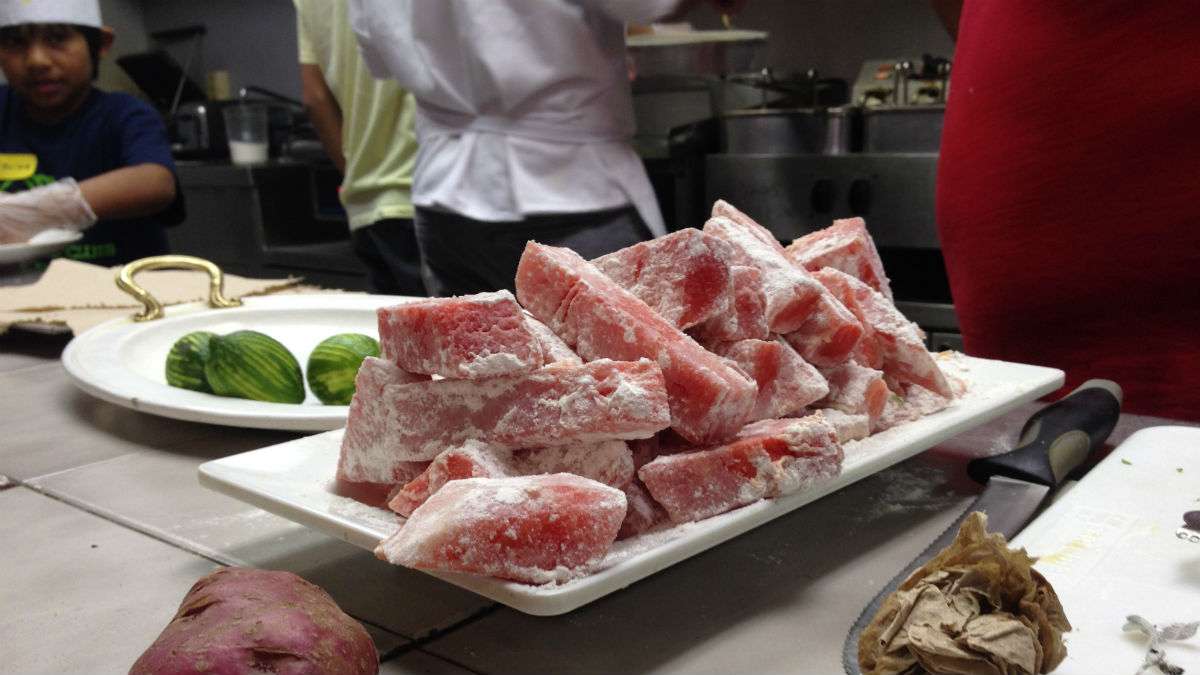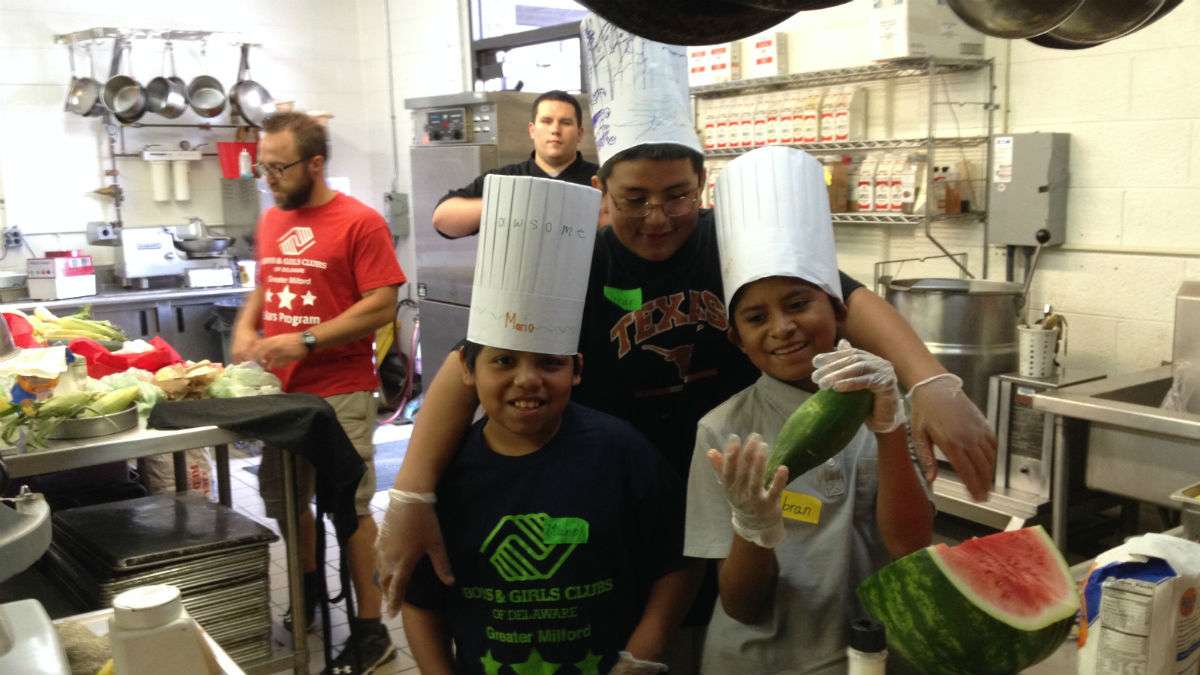Fruits of their labor: Migrant students in Delaware cook products picked by parents [gallery]
It was a bounty so large it seemed liable to spill—off the counter and onto the beige, tiled flooring.
Cantaloupes balanced precariously alongside tomatoes.
Bags of peaches pressed flush against stacks of corn.
Not long ago the items had been plucked from fields in Southern Delaware, likely by migrant farm workers who flock to the First State every summer.
But rather than make their usual journey to a supermarket or restaurant, they’d wound up in the teaching kitchen at Delcastle Technical High School near Wilmington. And where they would normally land in the hands of middle-class shoppers, today the sons and daughters of the workers who harvested these products would taste the literal fruits of their parents’ labor.
Every year, roughly 100 students participate in a six-week summer program that serves the children of migrant farm workers in Delaware. The Delaware Migrant Education Program focuses largely on building literacy skills to help these oft-interrupted students keep pace.
For the past six summers, the program has also included a special, one-day culinary expedition. Split into teams of three, the students build menus based on the products their parents helped pick. Then, under the supervision of local high school students, they bring those menus to life in Delcastle’s sprawling kitchen complex.
A team called the Fire Breathers concocted chicken meatballs while the Tres Hermanas worked on tortilla pizzas. There were chili cheese fries and fried watermelon and even a batch of peach-and-corn fritters.
And of course, who could forget the smoky smell of bacon wafting from the griddle?
“Everybody likes bacon,” said Oscar (the Delaware Department of Education asked we not use students’ last names), aged 12. “So there’s a bigger chance we’ll win.”
At day’s end, the teams with the best food earn special recognition. The competitive element, though, is secondary.
“This is really just to honor the families and what they do,” says Ryan McNulty, who works with the Delaware Migrant Education Program through its site location at the Kent County Boys and Girls Club. “[We’re] just showing these kids—if they don’t already know—that their parents work is something that should be appreciated.”
That message may be a bit nuanced for the younger students, but McNulty believes the pre-teens and teenagers gain some affirmation when they get to experience the other end of the agri-business pipeline.
Plus, these sorts of excursions help keep students engaged and parents satisfied. Maria Mendoza leads the program’s recruitment efforts, and knows how hard it can be to find migrant students and keep them in the fold. Mendoza scours farms, motels, and laundromats in Southern Delaware to search for perspective students.
“If I find one family then that family leads me to another one and another one,” Mendoza says.
Mendoza arrived in Delaware 25 years ago as a migrant farm worker and took English language classes through the Delaware Migrant Education Program, so she knows how valuable the program can be. She also knows the extraordinary challenges these students face. The travel patterns of migrant farm workers and their families follow the growing seasons, and don’t necessarily correspond with school calendars.
“A lot of the students, when their parents leave, sometimes they leave even before the school year ends, and that interrupts their education,” Mendoza says. “Many times, also, they stay in Delaware after school starts. So when they go back to their home state, they go behind already.”
Factor in that many speak English as a second language, and the hurdles grow even higher. The federal Migrant Education Program—of which the Delaware Migrant Education Program is a part—was established in 1966 to help serve this vulnerable population and enrolls more than half-a-million students every year.
They include Jose, 11, whose family has been coming to Delaware from Texas every summer for the past 13 years. The family leaves their home near the Mexican border in April and doesn’t return until October, which means Jose begins and ends his school years in Delaware but gets almost all his instruction in Texas. Amid all the movement, he’s come to rely on—and look forward to—his time at the Boys and Girls Club that hosts the Delaware Migrant Education Program.
Mario, also 11, came to Delaware for the first time this summer. His dad, mom, and older brother all work picking watermelons. He says he and his family are living at a Traveler’s Inn, and will be returning to Immokalee, Florida in the coming weeks.
Mario wants to own a restaurant someday. His signature dish? Tamales with a side of watermelon salad—and a watermelon smoothie to wash it all down.
He even knows the publicity stunt he’s going to pull when the restaurant launches.
“The first day, for the grand opening, everything’s for free,” he says.
WHYY is your source for fact-based, in-depth journalism and information. As a nonprofit organization, we rely on financial support from readers like you. Please give today.













